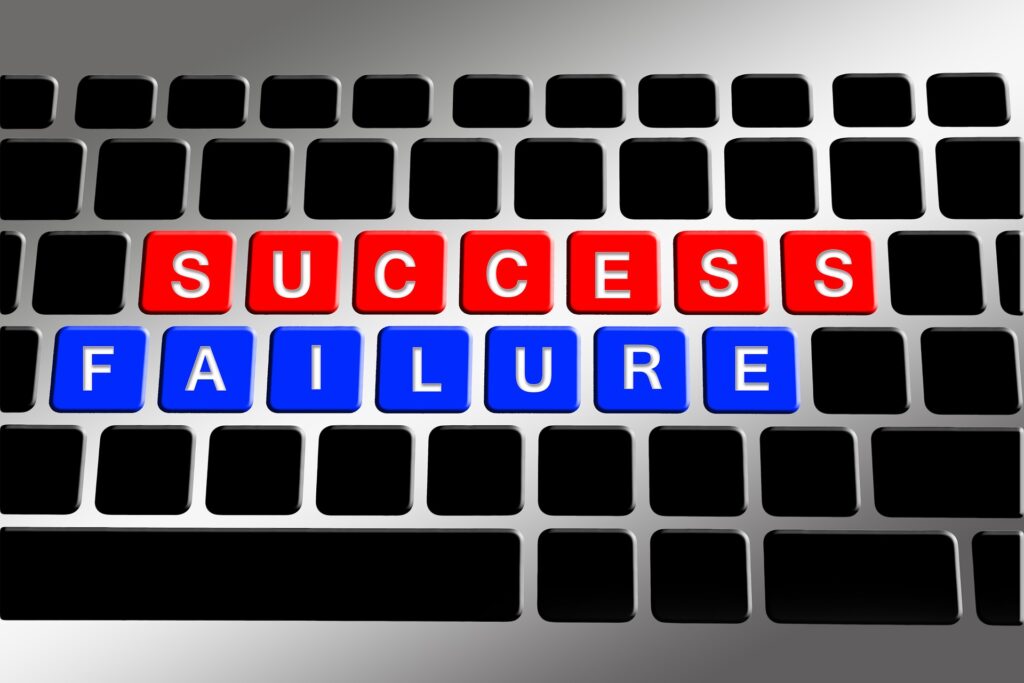Early in my career, I worked in events and conference planning. Ask anyone, I was a master at “worst case scenario” planning.
- 100% chance of rain for a garden reception – reserve a tent (check!)
- Light bulb burned out for overhead projector – have extras (check!)
- Speaker missed his flight – drive to Los Angeles to pick him up (check!)
Frankly, I reveled in the chaos of high-stakes planning and responding to the unknown.
I realized, however, I was starting to get more thrills out of the “saves” and not so much out of the routine of making good plans work. And slowly but surely it crept into my thinking about everything and impacting my life in ways I didn’t always understand.
I was avoiding taking risks where I thought I might fail. If I thought I couldn’t “make the save”, I just wouldn’t attempt the task or project; And slowly my risk zone became a lot narrower. Being great at seeing all the obstacles (or possible ones) is a wonderful skill. If you use that skill for the purpose it was intended – to help you grow and succeed – not to avoid challenges and pain.
Here’s the shocker – focusing on the possibility of failure eliminates the opportunity for success. That’s right – focusing on the possibility of failure of an endeavor will ultimately result in failure. That’s how our brains are wired. Instead, train yourself to see obstacles or possible problems as steps to success. Sounds the same, right? Let me explain.
Think of any high skill, high stress profession – such as an airline pilot or a surgeon. Both have great responsibility, will have spent countless hours working on their skill and craft and KNOW that bad things can happen – lose a patient or crash a plane – not high on anyone’s success list. But here’s the deal, a pilot doesn’t start his pre-flight check list saying, “What’s going to keep this plane from crashing?” and a surgeon doesn’t say, “I hope I don’t lose this patient.” They don’t want the image of “the worst case scenario” obscuring their vision or ability to make good decisions.
Instead, they focus on the tasks and skills that will ensure their success regardless of the obstacles they might find in their way. That may mean learning a new skill or finding solutions in advance – but regardless, their learning, preparing and thinking is set up to ensure their success not contemplate possible failure. So their thoughts and preparation most likely revolve around, “What’s going to keep this plane in the air?” and “I have all the skills and knowledge to operate successfully on this patient.”
Okay, so I’m not a brain surgeon or a pilot. I was working on creating a new program for my clients. I was really excited and thought it would be amazing but I had a few questions on how exactly a few things were going to work. As I started using my well-developed, “worst case scenario” and analysis problem-solving skills, I soon was UNABLE to do anything because I was convinced there were too many obstacles to make it successful.
But, I knew if I didn’t try at all, that would be even worse. So, as soon as I turned my thinking around and asked, what is going to make this program successful? I found myself looking at creating a list that was simply a set of tasks – some I knew how to tackle – some I needed help. But each was a stepping stone to success – not a pothole to despair and fear.
And so the next time you find yourself thinking about failure more than you would like, ask yourself a question – what are all the ways that I can make me/this project/my life better? You may be surprised at how easier it is to risk failure to be successful.



